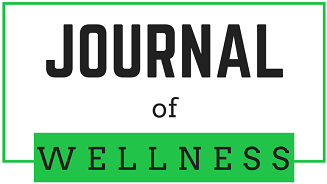
Abstract
Introduction: In response to concerns about burnout, many medical schools have been initiating wellness curricula and programming. A key to the success of these efforts is having engagement from targeted audiences. Gathering input from these groups regarding preferred lexicon, wellness actions, and perceptions of judgement or guilt around such actions can help in developing and promoting such curricular and programmatic offerings. Engagement is especially important when it comes to the predictors of burnout (e.g., self-care, self-compassion, and emotional self-disclosure).
Methods: Utilizing a focus-group methodology as a preliminary step, medical school faculty and students discussed terms regarding burnout predictors. Thematic analysis using grounded theory was used to analyze transcriptions with the generated preferred terms being incorporated into a follow-up survey. Surveys were completed by 23 faculty, 65 students, 23 residents, and 124 staff (n = 235). The survey asked for ranked preferences of lexicon terms, ratings of engagement and importance around wellness actions, perceptions of judgement and guilt around engaging in self-care, and disengagement and exhaustion via the Oldenburg Burnout Inventory.
Results: Overall, results revealed a preference for alternative language (i.e., “personal well-being” (p < 0.001), “being kind to yourself” (p < 0.001), “sharing your feelings” (p < 0.001)) compared to phrases commonly used in the wellness literature (i.e., self-care, self-compassion, and emotional self-disclosure). Engagement in self-care (p < 0.001), and self-compassion actions (p = 0.001) were inversely correlated with burnout, while perceptions of being judged (p < 0.001) and feeling guilty for self-care (p < 0.001) were positively correlated with burnout.
Conclusion: Incorporating preferred lexicon terms and mitigation factors (correlating with the reduction of burnout) into wellness curricular development is encouraged as a valuable initial step for medical schools and organizations as they reach out to their intended audiences.
DOI
10.18297/jwellness/vol3/iss1/6
Recommended Citation
Horneffer-Ginter, Karen; Greene, Jeffrey; Graves, Lisa; Gibson, Kristine; Apple, Roger; Tullio, Julia; and Kaufman, Adrienne
(2021)
"The Words We Use, the Actions We Take, and the Perceptions We Hold: First-step assessments to inform wellness curricula and burnout prevention programming,"
Journal of Wellness: Vol. 3
:
Iss.
1
, Article 6.
DOI: https://doi.org/10.18297/jwellness/vol3/iss1/6
Available at:
https://ir.library.louisville.edu/jwellness/vol3/iss1/6
